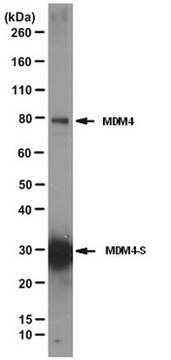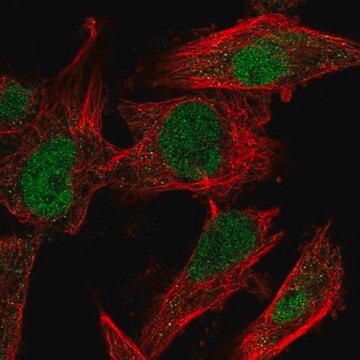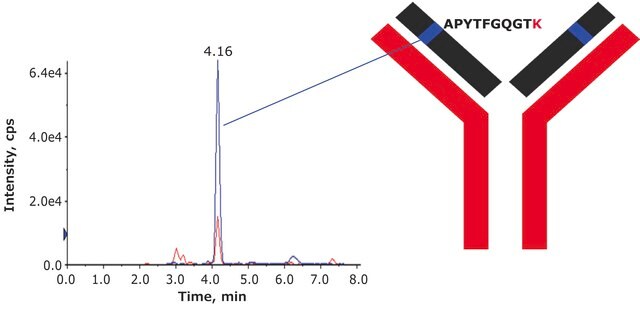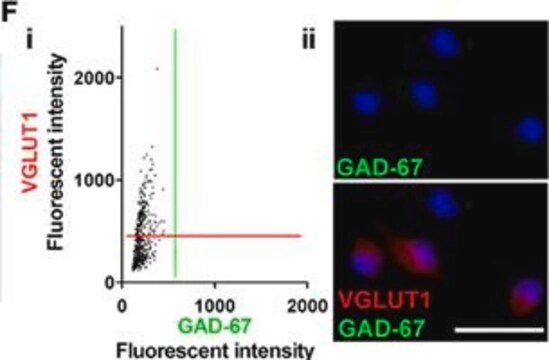Key Documents
M0445
Anti-MDMX antibody, Mouse monoclonal

clone MDMX-82, purified from hybridoma cell culture
Synonim(y):
Anti-HDMX, Anti-MDM4, Anti-p53 Binding Protein
About This Item
Polecane produkty
pochodzenie biologiczne
mouse
Poziom jakości
białko sprzężone
unconjugated
forma przeciwciała
purified immunoglobulin
rodzaj przeciwciała
primary antibodies
klon
MDMX-82, monoclonal
Postać
buffered aqueous solution
masa cząsteczkowa
antigen ~80 kDa
reaktywność gatunkowa
human
rozszerzona walidacja
recombinant expression
Learn more about Antibody Enhanced Validation
stężenie
~2 mg/mL
metody
immunocytochemistry: suitable
immunoprecipitation (IP): suitable
microarray: suitable
western blot: 1-2 μg/mL using total cell extract of HEK 293T cells transfected with human MDMX
izotyp
IgG1
numer dostępu UniProt
Warunki transportu
dry ice
temp. przechowywania
−20°C
docelowa modyfikacja potranslacyjna
unmodified
informacje o genach
human ... MDM4(4194)
mouse ... Mdm4(17248)
rat ... Mdm4(304798)
Opis ogólny
Specyficzność
Zastosowanie
Działania biochem./fizjol.
Postać fizyczna
Przechowywanie i stabilność
Oświadczenie o zrzeczeniu się odpowiedzialności
Nie możesz znaleźć właściwego produktu?
Wypróbuj nasz Narzędzie selektora produktów.
produkt powiązany
Kod klasy składowania
10 - Combustible liquids
Klasa zagrożenia wodnego (WGK)
WGK 3
Temperatura zapłonu (°F)
Not applicable
Temperatura zapłonu (°C)
Not applicable
Środki ochrony indywidualnej
Eyeshields, Gloves, multi-purpose combination respirator cartridge (US)
Certyfikaty analizy (CoA)
Poszukaj Certyfikaty analizy (CoA), wpisując numer partii/serii produktów. Numery serii i partii można znaleźć na etykiecie produktu po słowach „seria” lub „partia”.
Masz już ten produkt?
Dokumenty związane z niedawno zakupionymi produktami zostały zamieszczone w Bibliotece dokumentów.
Nasz zespół naukowców ma doświadczenie we wszystkich obszarach badań, w tym w naukach przyrodniczych, materiałoznawstwie, syntezie chemicznej, chromatografii, analityce i wielu innych dziedzinach.
Skontaktuj się z zespołem ds. pomocy technicznej






